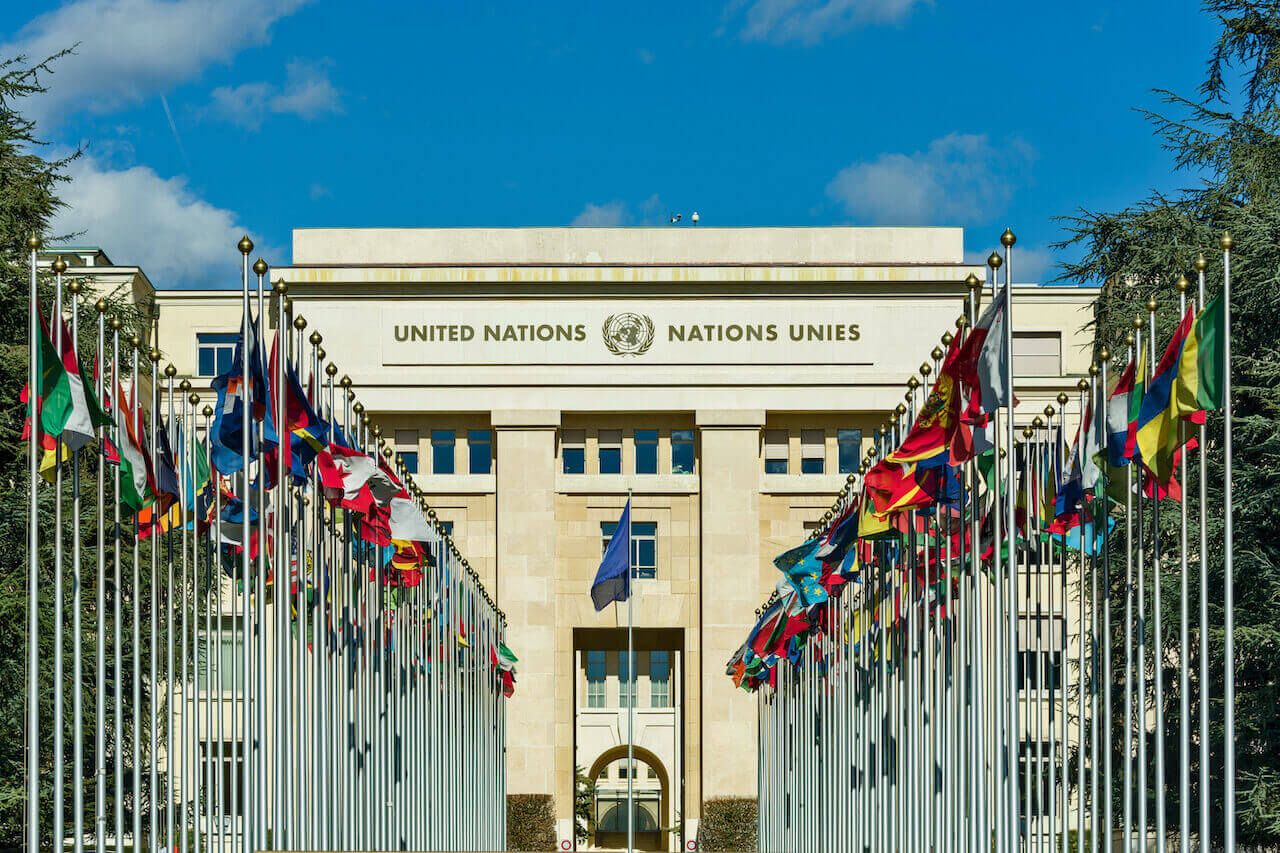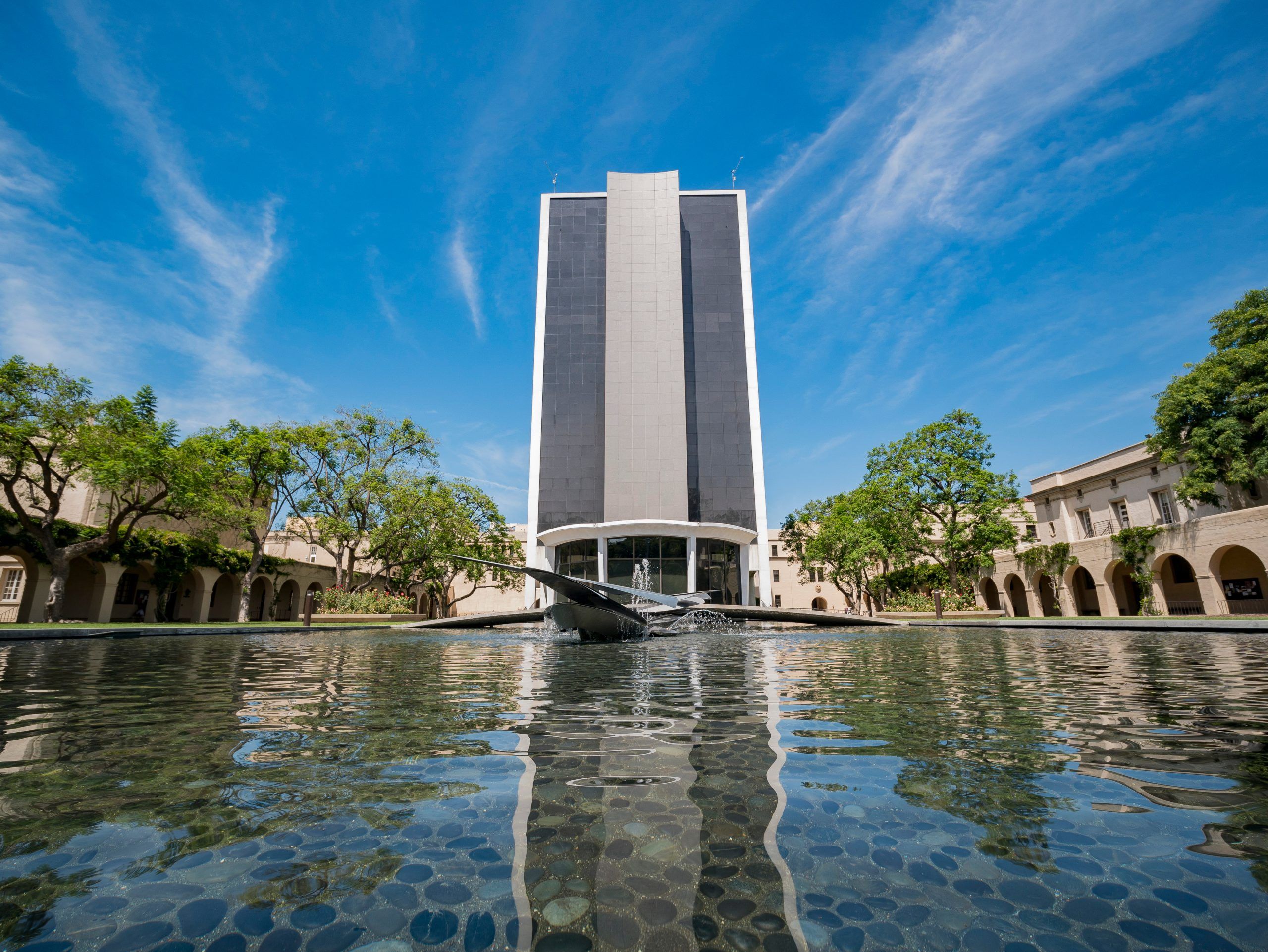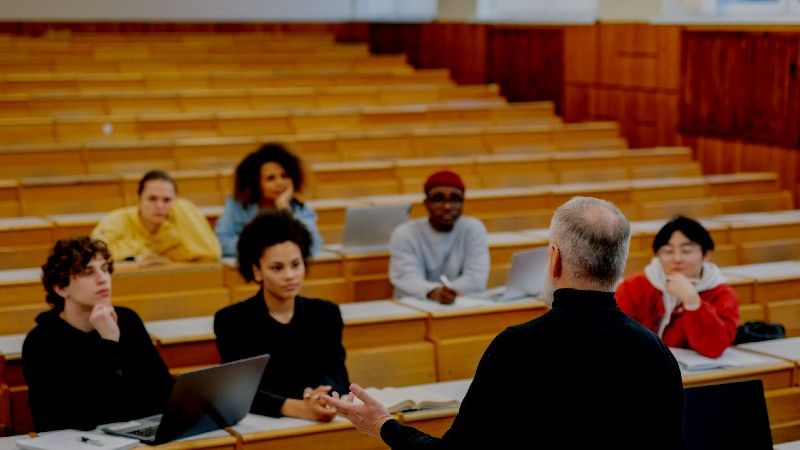Amherst Accepts 9% of Applicants into Class of 2028
Read now/f/64062/1080x540/32b61dea6e/amherst.png)
/f/64062/2544x1130/f07eb46943/climate-change-from-science-to-action.webp)
Jump To
What I Saw
Insight #1: The Sum and the Parts
Insight #2: The Power of Sharp Minds
Insight #4: The Role of Education
Recently I had the privilege of stepping out of my director role at Crimson Education and attended the COP28 United Nations Climate Chance Conference in Dubai. My thoughts and expectations were focused primarily on the future of our planet, green technologies, and to a lesser degree the future of work. But I quickly found that my thoughts repeatedly turned back to reflections on education, on the importance of rich and rigorous college experiences, and on the personal aspirations common to so many Crimson students.
In this post I wish to share some of my most vivid impressions and insights from the conference, not as words of wisdom so much as sparks of enthusiasm to inspire further dialogue around topics of mutual interest to young people and my Crimson colleagues — topics related to the future of work, environmental challenges, to the ways our collective future shapes the experiences of younger students, and how education intersects so deeply with all of these.
[Editor's Note: Soraya Beheshti, Directing Manager for EMEA Services at Crimson Education, recently visited the COP28 Conference in Dubai. Below she shares some of her thoughts and takeaways on our changing world, educational opportunities, and the dreams and achievements of today’s exceptional generation of college-bound young scholars from around the world.]
For the highly motivated students we work with day in and day out at Crimson Education, a top preoccupation is competing for admissions to top schools. But it’s certainly worth taking a moment to remember that getting in, for virtually all of these students, is not an end in itself, far from it.
Young students aspiring to college today see a world desperate for direction, urgent action, and well-equipped leaders. And, while technology-driven changes were already accelerating decades ago, that train is now a bullet train, soon to be a rocket ship!
The exceptional drive, vision, commitment, and excitement I see in the young scholars we work with at Crimson seems perfectly aligned with this generational zeitgeist. But even as their college journeys — fueled by entrepreneurial, meaning-driven, or possibility-driven dreams and aspirations — have trajectories aimed well beyond college, the scope of these aspirations make the college quest pivotal.
From the perspective of a high school student entering a world of boundless knowledge expansion and immense existential challenges, but who feels stuck on the launch pad in the short term, it makes sense that college aspirations become an intense focus for finding new agency and meaning.
But obviously this college quest is a stepping stone to something more tangible, in terms of both individual fulfillment and feeling more empowered in the face of a future most of us can hardly keep up with trying to even imagine.
So this is the context in which my observations and reflections during the COP28 conference seamlessly shifted from environmental issues to thoughts about educational opportunity, about the role of education in a world of fast knowledge expansion, and about education and empowerment in an age of accelerating high-stakes planetary threats.


Initially, my impressions were jumbled at best… After all, Dubai — the touristic powerhouse of the oil-producing United Arab Emirates — struck me as an unlikely candidate to host a prestigious global climate conference, with the UAE being the third largest oil producing state in OPEC!
But the more time I spent at the COP28 conference, the more it made sense. The countries that stand to lose most in the transition towards renewables have the most incentives to take an active role in sustainable development. Their futures depend on it…
But then all of our futures do to a significant degree. Young people today, like countries on the front lines of climate change, no doubt see themselves as facing far bigger challenges and risks than their parents’ generation, who enjoyed unprecedented economic mobility and cheap resource exploitation for decades….
So it's not surprising young people feel an overwhelming urgency to engage in change — or slow it down — but they also confront doubts about the best next steps. The college way today is fraught with rising tuition costs, concerns about social equity, doubtful messages about the value of a well-rounded educational experience and "impractical" liberal arts pursuits, and so forth.
Those of us who know what a high-quality university education really offers in terms of new opportunities need to shine a light on the ways rigorous academic challenges will empower and equip young people to meet the large-scale challenges we see on the horizon.

Back to Dubai… To give you a picture of what was fueling my reflections, the Expo site was 1,000+ acres and resembled something like a sustainability village, with large halls showcasing companies and products and hosting panel discussions, with a startup village, multiple food halls, parks, an outdoor amphitheater, organic garden, an indigenous people’s ceremonial circle and more.
The almost carnival-like atmosphere at COP28 was unexpected but helped to engage me and other visitors in what could otherwise be a very technocratic milieu.
For me, each day spawned new reflections — not only on the future and sustainability, but on how all of this converges with the aspirations of today's global generation of exceptionally accomplished and profoundly driven education seekers.
My hope is that the insights I'm sharing will help all of us at Crimson — leaders, advisors, and our students — see ourselves and our aspirations with a bit more clarity and conviction:
My first insight came while admiring projects on display in conjunction with the Dubai Future Foundation (DFF) and Prototypes for Humanity showcase. The showcase cast a laser beam on the paramount role of education and educational access, especially as we shift to a solutions-based economy.
These projects were all solution driven and responsive to the many global environmental challenges that inevitably loom large on the horizon for many of today’s high school and college students. Importantly, the conference organizers highlighted the urgency and value of students' skills and innovative ideas by awarding winning projects in each category a $100,000 monetary prize.
The five categories included 1. Nature, Food and Water Systems; 2. Health, Relief and Safety; 3. Energy, Efficiency and Waste; 4. Data Science and AI-Enabled; and 5. Education, Equality and Communities.
Traipsing through the hall I saw an amazing array of inventive and disciplined technological creativity from teams representing 100+ countries. Here are just a few examples:
I couldn’t help but think of the now somewhat hackneyed quote from anthropologist Margaret Mead:
Never doubt that a small group of thoughtful, committed citizens can change the world; indeed, it's the only thing that ever has.
This first insight is that solving big problems isn’t just about big-picture thinking, but will require an infinite variety of unique, uniquely complex, and discretely targeted solutions.
In other words, while trying to solve everything is a noble pursuit, it's unrealistic, and ineffective to boot.
What I saw at the showcase event at COP28 presented an optimistic picture, but it was made up of a rich tapestry of ideas from literally every field and micro-field of human science and society. That is where I hope many of our students will apply themselves in the coming years.
We all occupy little worlds, and starting with your little world, combined with a commitment to excellence, small ideas become integral parts of urgent solutions.


At Crimson, we believe that technology has an incredibly important role to play in our mission to create the education system of the 22nd century. Amid all the apocalyptic discourse about climate change, many cling to the hope of technological advancements to deliver a silver bullet solution — if we didn’t believe it, how could we have a hope of building it?
One of the most fascinating events I attended was a panel discussion on nuclear energy. In fact, the very first discussion on nuclear energy in COP’s 28 year history.
The topic of nuclear power is often deeply divisive. Calling it a “clean energy” is obviously debatable.
Our collective memory of nuclear disasters invokes images of decay and global panic. More objectively though, or at least arguably, nuclear — done well — is one of the cleanest energy options possible for many countries, particularly those without favorable conditions for wind, hydro, or solar.
In 2007, nuclear power conglomerate Areva NC claimed that, due to the prevalence of nuclear fusion as a source of power, France's carbon emissions per kWh are less than 1/10 that of Germany and the UK, and 1/13 that of Denmark, which has no nuclear plants.
France’s emissions of nitrogen oxide and sulfur dioxide have reportedly been reduced by 70% over 20 years, even though the total power output has tripled in that time.
Without continuous investments into technology — and into accelerating the pace of STEM education — the safety risks of this and other kinds of technology would simply be too high. The same is true of electric cars, hydrogen power, bioremediation, water desalination and more.
All of this is a reminder that we need leaders with exceptional qualities who can think before they lead, and that it’s too simplistic, given the scope of the challenges, to reduce technology to a “double-edged sword” or think that a myopic focus on technology itself is sufficient.
Future problem-solving will require specialists equipped to excel at patient experimentation and bold imagining and leaders and influencers able to navigate the social and cultural complexities that “scientists” traditionally are prone to ignore but which can have immense consequences for the fate of innovations (think Rogers' groundbreaking study on the diffusion of innovations paradox, with the recent polarizing debates around the benefits of immunization a case in point).
The growing scientific consensus is that the future — which now has a name, the Anthropocene — is here, and that this current future will require robust science innovation with a solutions focus.
Coding bootcamps and online learning platforms will have a role to play in this information-, tech-, and solution-driven future, but we will also need so much more in the way of holistically educated and networked statesmen-scientists — educated leaders able to deploy deep technical knowledge within complex social frameworks.
Modern problems require modern solutions — but they also require ancient ones. It’s incredibly refreshing to see indigeneity finally being taken seriously as a critical piece of the puzzle.
Raylene Whitford, a director with the Canadian Sustainability Standards Board, expressed pride in seeing so many Indigenous voices at COP28:
Historically, we’ve been excluded from these types of conversations. So, it’s so great to see Indigenous people from so many different countries here at the conference.
Long before it was in vogue to do so, indigenous communities were granting rights for rivers and speaking as voices of nature when others were not listening. They have thousands of years of wisdom and experience as shepherds of natural resources and natural ecosystems. Now the world is listening…
In addition to native spirituality and wisdom, arts and social justice also had a place at the table at COP28.
Walking around COP, I heard the term ‘Just Transition’ a lot. The Just Transition is a social justice framework defined by the International Labour Organization as “greening the economy in a way that is as fair and inclusive as possible."
Art was also a theme. Dubbed the John Stewart of the Arab world by some, comedian Bassem Youssef noted how this is really the first time the conversation at an event like COP has moved from being purely statistical or technocratic to incorporating the arts — something deeply human.
Stavros Antypas of the Arts Club poised thought provoking questions about the role institutions can play in promoting the arts in order to create a sense of identity and place and connect people to built and natural environments — all through the lens of sustainability.
Art operates as a feeling function of human civilization. It has the power to evoke emotions and create the kind of deep stirring that mobilizes people to take action. Music, too, is a language that speaks to people on a much more fundamental level than words.
Seeing comedy, art, and ancient wisdom in the mix, alongside visionary technology applications, led to my Insight #3: reaching our climate goals is not all about technology and will require a team effort in the truest sense to make information and inspiration accessible to as many people as possible.
That messaging must necessarily reach people of different cultures and specializing in very different domains and ways of seeing the world, be it physics, biology, chemistry, film, music, comedy, or commerce…
A majority of Crimson students I encounter are working very hard to get a top-notch education because they want to excel in innovation fields — you know, “practical majors” such as computer science, biomedical engineering, or advanced economics…
But some of the young students on college journeys that are quite remarkable and memorable for me and my fellow Crimson colleagues are those pursuing deep commitments in liberal arts fields such as classics, philosophy, literature, visual design, and more — all with the common aspiration of excelling at very selective institutions where they can learn from top scholars in those fields. After all, I followed the same pathway, choosing to pursue Anthropology and Middle Eastern Studies.


As you’ve probably noticed, this last insight, on the role of education, is woven through all of the insights above. It’s imperative we ensure all talented and committed scholars — wherever they live — can access exceptional college experiences. Not only because of the growing knowledge demands in so many scientific fields, but also because of the critical thinking, collaboration, innovation, and leadership skills future challenges will demand.
Moreover, we need to meet the demands of knowledge expansion and accelerating innovation with education initiatives that have a longer runway. Young students of promise need opportunities to discover and develop latent talents well before college in order to reap the rewards of forging purposeful commitments in earlier grade levels.
To do this, we need global perspectives and programs in the education space, with an emphasis on providing equitable access to high-quality learning resources — which today’s technologies enable more than ever.
We need diverse learning opportunities that ignite passion, engage authentic problem-solving, support rigorous, scaffolded learning opportunities, and are responsive to diverse aptitudes and learning styles. Think more and better when it comes the following:
Finally, despite the interests today in so-called skills-based learning models, we need four-year institutions that offer deep and well-rounded learning experiences with curriculum. designs emphasizing critical inquiry, holistic interdisciplinary frameworks, and the integration of global citizenship.
This kind of depth and rigor will be an important bulwark for resisting and combatting disinformation and any forms of tribalism that disparage free thinking, inclusion, or evidence-based dialogue, so that our sense of shared connectedness has a chance to evolve alongside our mind-bending technological and scientific advances.
I went to the COP28 conference out of a yearning to feel connected to humanity's most pressing and unprecedented existential challenges, and seeking some glimmers of hope and reassurance.
Unexpectedly, my experiences quickly converged with observations and reflections connected to my role at Crimson and to the stories of motivated Crimson students seeking elite educational experiences.
Many of these students' college journeys testify to a drive and vision manifesting as early as middle school — but all of them have a clear conviction that only a top-notch educational experience matches the scope of their aspirations.
I certainly don’t expect my insights from the COP28 conference to be the last word for any of my readers. But, I hope they might stimulate further discussions — and generate new insights — among students, their parents, my colleagues at Crimson Education, and educators around the world. And, I’m curious what younger students think about the convergences I’m suggesting — convergences that seem inevitable, but who am I to say?
I also hope these insights give further conviction to those aiming to re-invigorate and expand our vision of holistic learning, starting in younger grade levels, and into, through, and beyond college — especially now when more individuals are living longer and into the reality of being lifelong learners — whether out of passion, necessity, or both.
If you want to know more about Crimson Education and the programs inspired by our collective passion for education, here is a list of resources to help you take your next steps:
What Makes Crimson Different